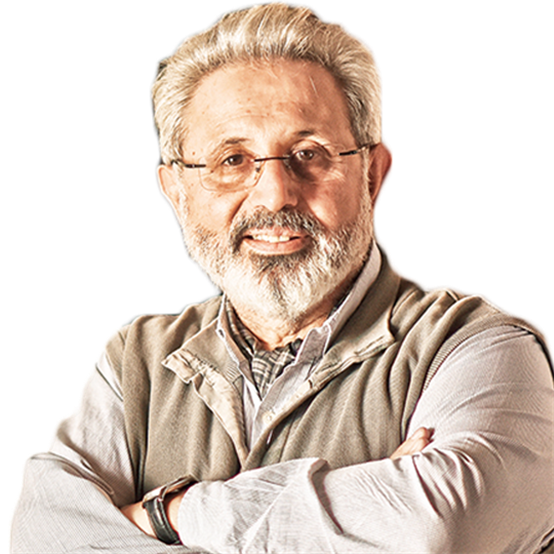Turkey taking initiative in the Mediterranean in cooperation with Libya’s legitimate administration, the Government of National Accord (GNA), shifted the balances in North Africa. This not only triggered a political process that will long continue to be debated but also led to the revival of the region’s historical memory. In articles I wrote following the deal between Turkey and Libya, I had said that this would be perceived as a challenge to the world, and activate anti-Turkey lobbies.
Currently, while the competition between the U.S. and Russia in the Mediterranean and North Africa is reaching new heights, France’s colonial psycho-history attacks have also surfaced. However, as a result of this, countries in the region are also starting to reform themselves.
It would not be an exaggeration to say that the Turkey, Libya, Algeria, Tunisia, and Morocco axis is developing against the Egypt, Southern Cyprus, Israel, and Khalifa Haftar axis, which is provoked by France and backed by some EU countries. France’s former colonies, whose independence it cannot tolerate, siding with Turkey and Libya made France go mad. Meanwhile, its difference of opinion with the U.K. and Italy in terms of regional policies has become French President Emmanuel Macron’s worst nightmare.
The sudden finalization of the prolonged negotiations regarding the return of the Algerian martyrs killed by the French during the occupation years and whose skulls have been on exhibition in Paris is no coincidence. By returning the skulls of the 24 martyrs to Algeria, which is proof of the crimes it committed 170 years ago, France is giving two messages. In its first message, it is trying to say it wants to turn over a new leaf in North Africa with a veiled apology due to the crimes it perpetrated in the past, which are ingrained in memories. In its second message, it is using the martyrs’ skulls to reiterate its oppression, injustice and colonial culture. Signing off with the reminder that it can resort to the same methods, if necessary, it is threatening Algeria and the other regional countries.
There is no other explanation for the sudden finalization of the negotiations that had been ongoing for 16 years. This result does not consist of the return of the 24 martyrs’ skulls only. It is an enormous achievement for Algeria; a ray of hope for their future. As a matter of fact, it is a start to settle accounts with their colonizers. It is impossible for France not to be aware of this and, as Algerian historian Hassan Zaidi says, it is impossible for it not to know that “this event will revive Algerians’ historical memory.” France taking its chances despite this fact shows that it still has a colonialist mindset and that it is afraid of the new trajectory that history is taking. However, fear does not prevent destiny from fulfilling its course. The skulls of the 24 martyrs will eventually have them called to account for the deaths of more than 1 million people.
Though colonialists covered their own crimes while making history in North Africa and presenting those that were the mediators of their oppression as saviors, this policy did not hold up. This is the factor that France and the others failed to take into account. They are comparing their own presence with the four-decade-long Ottoman history. Yet there is a stark difference between them. Oruç Reis and Hızır Reis are heroes to the Algerians. Hamdan Hodja of Burdur is ingrained in memories as Algeria’s last defender. In contrast, French generals Bourmond, Clauze and Duc de Ravigo are remembered for their oppression in Algeria.
The legends of the Turkish heroes who left positive traces in the country are still being read in Libya, while images of Italian fascist Gen. Radolfo Graziani’s execution of the great warrior, Omar Muhtar, are engraved in memories, never to be forgotten. The crimes committed against the people of Morocco by Spain’s Fenandes Silvestr and France’s Hubert Lyautey are still remembered with great hostility. Meanwhile, Ahmed Bedevi (Kuran) of Turkey’s Trabzon and Yanyalı Tahir, who quietly took part in the organization of Morocco’s National War of Independence, are still remembered with gratitude.
This is what France and Macron fail to understand. I will leave the stories of the last heroes mentioned for another article, and end with a statement from Hamdan Hodja, who I wrote about in previous articles, to the French. When he was telling the French, who were oppressing both him and the people, that the Ottoman administration in Algeria governed with “justice and fairness,” he said: “When the mind is influenced, the body has no choice but to obey it. What is a true conquest? True conquest is conquering hearts, not bodies.”




















